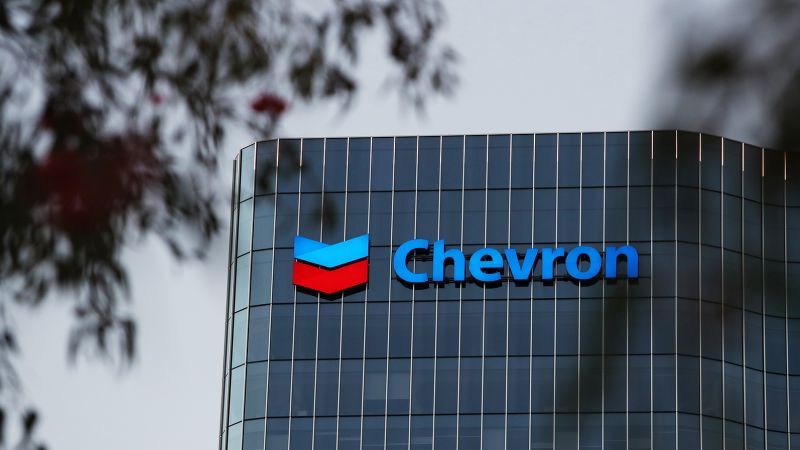Supplies from Chevron's liquefied natural gas facilities in Australia, which account for one-tenth of global supplies, could be disrupted as workers vote to authorize industrial action.
Workers at Chevron's two LNG plants in Australia are set to go on strike from 7 September, a move that could potentially drive up global prices, following weeks of negotiation over pay and working conditions with unions.
Workers at Chevron liquefied natural gas facilities in Australia plan stoppages next week, while Toyota plants in Japan face output standstill due to systems malfunction, potentially impacting supply and raising concerns about economic data and trading interruptions.
Workers at Chevron's Gorgon and Wheatstone LNG projects in Australia plan a two-week strike starting on September 14, which could disrupt LNG exports and potentially increase gas prices.
Strikes at Australian natural gas facilities could lead to a global shortage of gas supply and higher European gas prices, as the market is currently very tight with little flexibility, according to energy analysts. The strikes are scheduled to begin on Thursday unless an agreement is reached between Chevron and the unions representing workers at the Gorgon and Wheatstone projects. However, analysts believe that prices are unlikely to reach the record peaks seen in September 2021. The gas market also remains sensitive to other factors, such as disruptions caused by winter storms or a cut in Russian gas supply. There is also uncertainty surrounding the future of gas transit through Ukraine, which could further impact European gas prices.
Workers at Chevron's liquefied natural gas (LNG) facilities in Australia are holding talks with the company to avoid planned industrial action over pay and conditions, which could potentially impact global energy markets.
Workers at Chevron's liquefied natural gas facilities in Australia have agreed to delay strike action for one day, easing concerns in the gas market.
Workers in the United States are increasingly engaging in strikes and labor unrest, with 16 major strikes occurring in the country so far this year, the highest number since 2005, posing potential challenges for American businesses both domestically and abroad, as demonstrated by the threat of a strike at Chevron's plants in Australia.
Hundreds of workers at Chevron's liquefied natural gas plants in Western Australia have halted work in an industrial action over pay and working conditions, potentially impacting global gas prices.
European gas prices surged as workers at Australian natural gas facilities went on strike, raising concerns about global supply shortages. The strike, which is a result of failed negotiations over pay and job security, could potentially lead to a two-week halt in production.
Workers at Chevron's liquefied natural gas (LNG) projects in Australia have gone on strike after mediation talks failed, with plans to escalate to a total strike within two weeks if no deal is reached, potentially impacting prices and output in the LNG market.
Chevron workers in Australia went on strike, causing a negative impact on natural gas prices.
Approximately 146,000 U.S. auto workers are poised to go on strike if General Motors, Ford, and Stellantis fail to meet their demands for substantial pay raises and restored benefits, potentially causing significant disruptions in auto production and impacting the U.S. economy.
Chevron Australia will pursue a legal strategy to stop strikes at its Gorgon and Wheatstone liquefied natural gas facilities in Australia, after failing to reach a deal with unions, potentially risking billions of dollars in export revenue.
Chevron is seeking help from a labor regulator in Australia to resolve its dispute with unions at liquefied natural gas sites, as workers continue with partial strikes that have impacted global LNG prices.
Gas prices have been rising in the US due to drilling restrictions imposed by OPEC, with California having the highest prices; automotive workers in the US, represented by the UAW union, have initiated a large-scale strike against General Motors, Ford, and Stellantis; President Biden believes that auto companies haven't fairly shared their record profits with workers; Senator Sanders supports the strike as a fight for better conditions for the working class; the Federal Reserve will meet to discuss interest rate changes, with the current rate standing at 5.33 percent.
Workers at Chevron's LNG plants in Western Australia have initiated a 24-hour strike, with potential for strikes to continue until mid-October, as part of an ongoing industrial action by the Offshore Alliance union.
As the United Auto Workers (UAW) strike against the Detroit Three automakers continues, suppliers in the automotive industry are preparing for potential layoffs and disruptions in the supply chain, which could have significant economic consequences, including the possibility of tens of thousands of job layoffs and a potential crisis in the supply chain if the strike expands and lasts for several weeks.
An Australian union alliance has ended strikes at Chevron's two major LNG projects after accepting proposals on pay and conditions, resolving a dispute that had threatened 7% of global LNG supplies and raised prices by as much as 35%.

